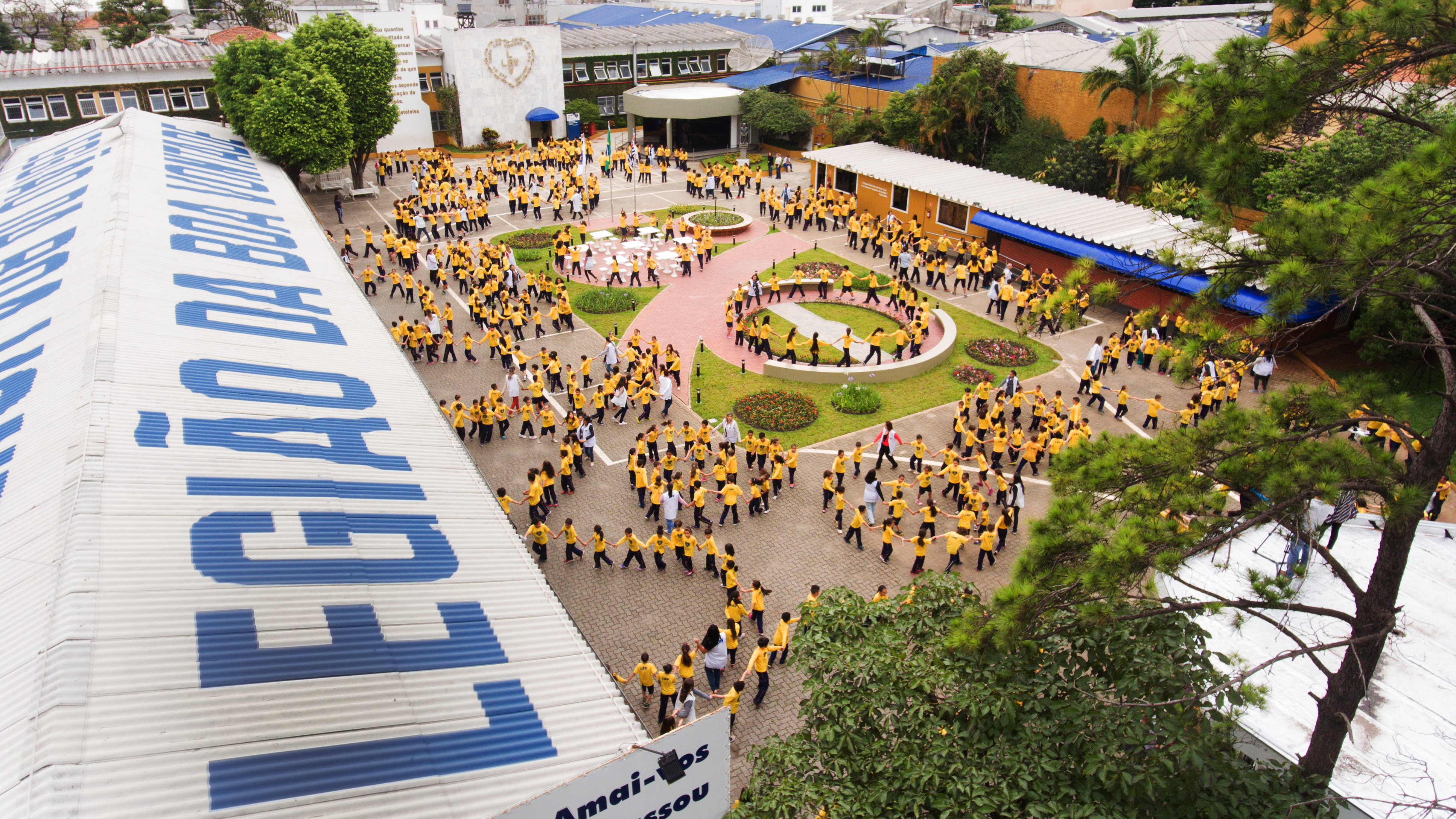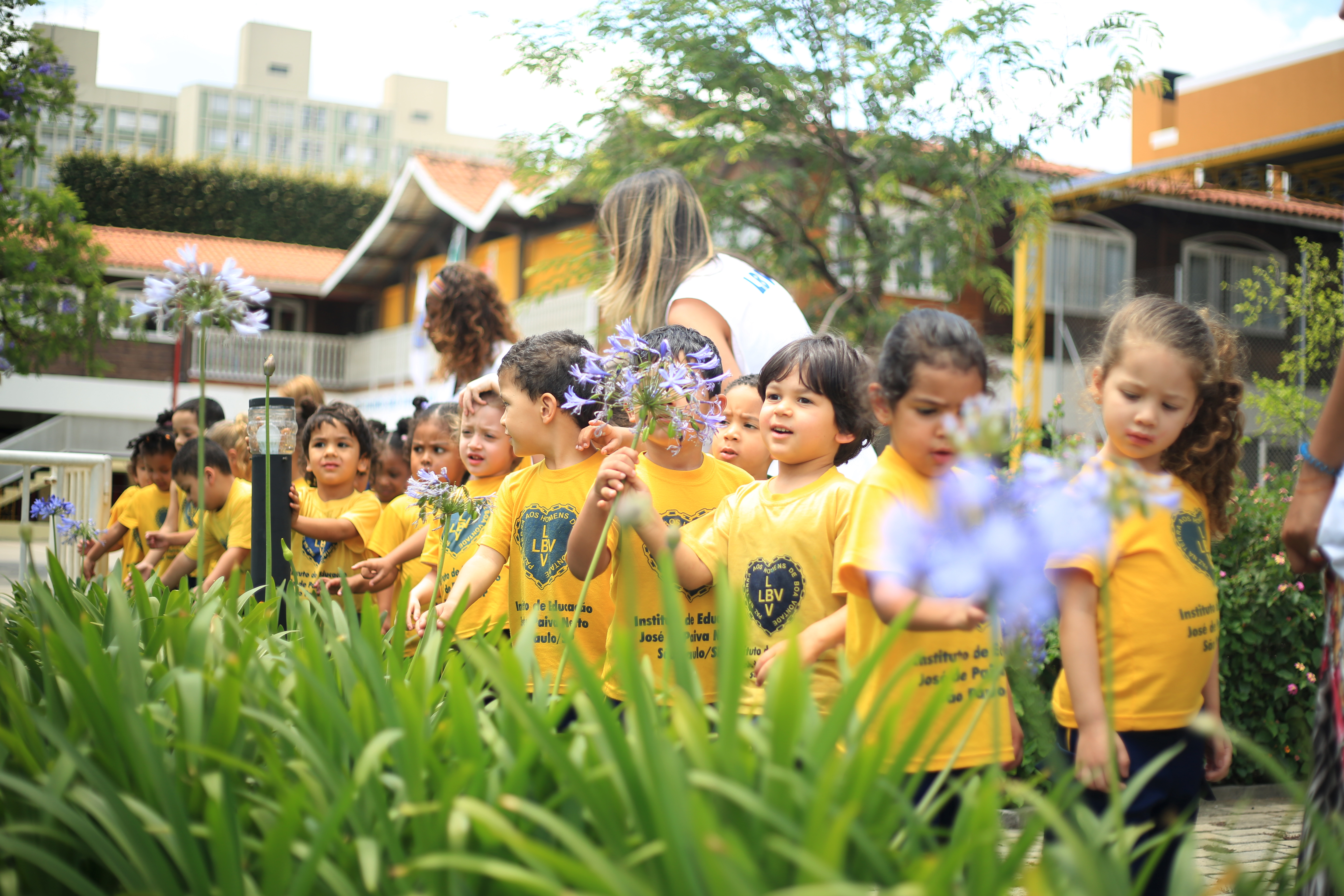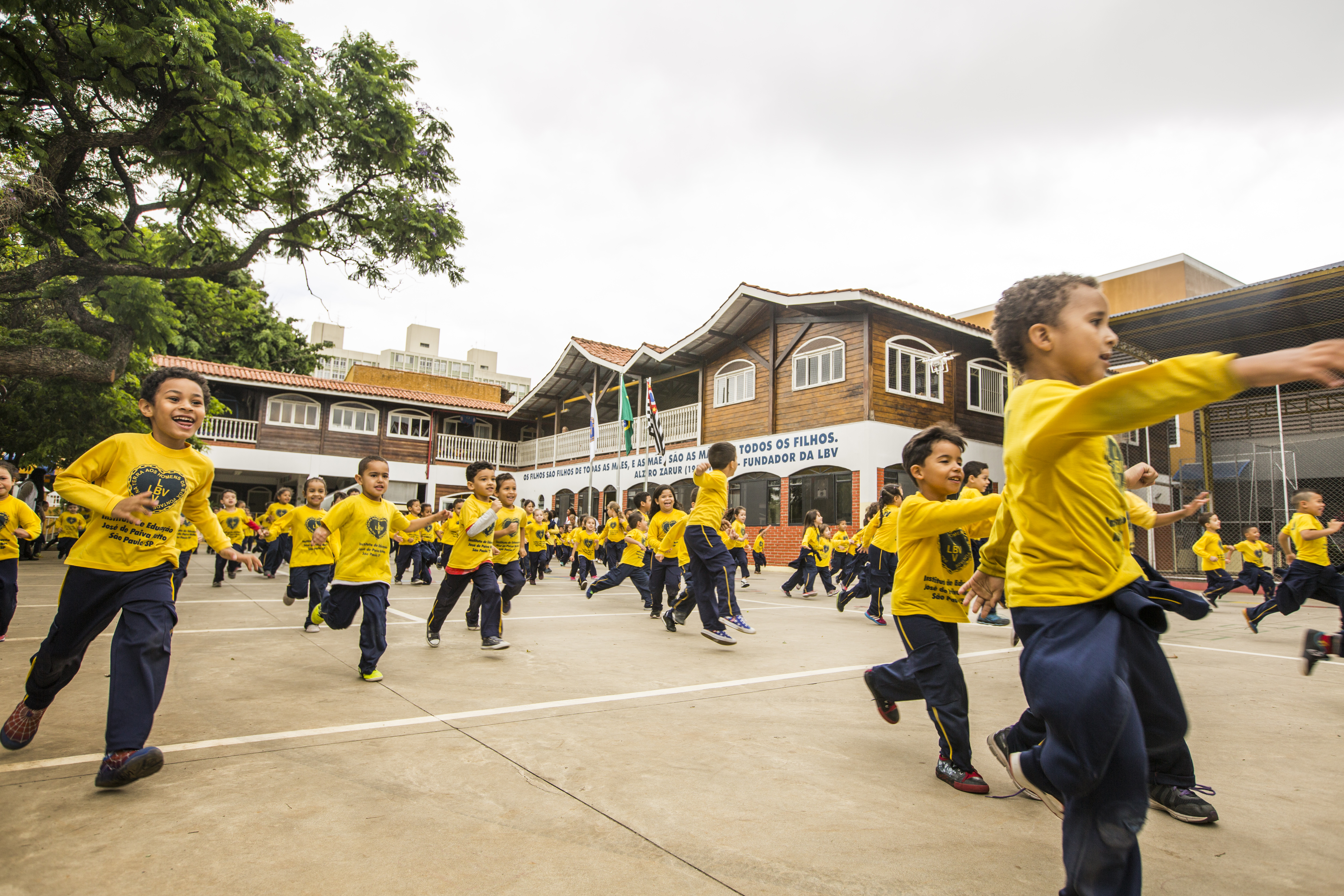For the past 65 years, the Legion of Good Will has been working to offer quality education to children, adolescents, adults, and elderly people living in a socially vulnerable situation. The LGW’s social and educational work has contributed to significant changes in the living conditions of individuals who live in poverty, particularly women and girls who make up the majority of the public assisted by the Organization. They attend in greater numbers the LGW’s professional training courses, educational talks on health, sexuality, and entrepreneurship, among other topics regarding everyday family life.

The courses offered by the Organization contribute to a positive change in the financial situation of these women—often responsible for the household income. The impact on their lives may be even greater when at an early age they attend a school of the LGW’s educational network and receive quality education infused with spiritual, ethical, and all-encompassing ecumenical values, which guide the Pedagogy of Affection (directed at children up to the age of 10) and the Ecumenical Citizen Pedagogy (from 11 onwards).
This teaching method was devised by the President of the Legion of Good Will, educator José de Paiva Netto, and establishes a special syllabus that promotes intellectual development with all-encompassing Ecumenical Spirituality*1, therefore uniting reasoning and feeling in the lessons/activities. Incorporating daily life situations in the subjects on the school curriculum and encouraging discussions that help develop a more assertive attitude when facing cases of harassment, prejudice, and other situations involving discrimination are strategies used by the teachers with the students who attend the LGW’s schools.

Practice in schools
Gender equality is continuously discussed in the Organization’s schools during activities that debate the theme and enlighten students about their rights, particularly the girls. This occurs in many ways on a day-to-day basis. Most of the time it is through research on a wide variety of subjects. This exchange of ideas, made possible by the material collected and mediated by the teachers, contributes towards personal development and knowledge appropriation, which prepares them for reacting positively when faced with situations that may arise in their lives.
 In applying this teaching method the highlight has been the good relationship that develops between the two sides. The students usually share what they learned from the research with each other (like the Maria da Penha Law*2 and other subjects that concern the protection of women). As a result the boys take on board the subject and develop a protective attitude when they are dealing with girls/female colleagues, thus creating an environment of respect and dignity. This attitude is so important and necessary for a peaceful coexistence in society and can be fostered both inside and outside the classroom, as well as in relation to their future female partners. Such discussions also expand the perception of young boys with regard to the role expected from them in protecting their mothers and sisters and even as being someone who will disclose the measures that must be taken in cases of domestic violence, rape, discrimination, or any other form of disrespectful treatment that belittles the female sex.
In applying this teaching method the highlight has been the good relationship that develops between the two sides. The students usually share what they learned from the research with each other (like the Maria da Penha Law*2 and other subjects that concern the protection of women). As a result the boys take on board the subject and develop a protective attitude when they are dealing with girls/female colleagues, thus creating an environment of respect and dignity. This attitude is so important and necessary for a peaceful coexistence in society and can be fostered both inside and outside the classroom, as well as in relation to their future female partners. Such discussions also expand the perception of young boys with regard to the role expected from them in protecting their mothers and sisters and even as being someone who will disclose the measures that must be taken in cases of domestic violence, rape, discrimination, or any other form of disrespectful treatment that belittles the female sex.
For this reason, it is up to the school to indicate the intellectual paths needed for collecting information, without neglecting the essential education of the students. Without intellectual knowledge and self-knowledge, based on rights that are legitimized by law, the change and empowerment that are expected for both sexes—victims of adverse situations—will not be achieved.

The educational concepts of the LGW’s teaching method invite us to reflect on the need to strengthen student’s internal qualities, which result from a solid basis offered to them at school (in addition to the family environment). From inside each one will come the strength necessary for adopting a critical and proactive posture when faced with situations that may threaten them. It is no coincidence that the methodology of the LGW’s schools, the MAPREI (Learning Method through Rational-Emotional-Intuitive Research), encourages students to express themselves and creates opportunities to discuss any subject in the classroom with the mediation of the teachers.
In his book É Urgente Reeducar! [It is Urgent to Re-educate], educator Paiva Netto writes about the LGW’s work stating that: “. . . what the LGW proposes is an extensive Re-education program. This is what we have been doing within our possibilities, seeking to awaken the interest of so many idealists, who, like us, do not believe in the fatality of destinies permanently condemned to misfortune, because of social, political, religious, and ethnic issues. . . .” You cannot empower students by indicating only the paths of intellectuality. Each individual has his or her own integrality and their rationality needs to be balanced with a heart imbued with good feelings (as the creator of this teaching method argues). This leads them to want to live in a fairer world and not allow, either for themselves or for others, ignorance to be an obstacle to the transformation possibilities so necessary for generations that are preparing themselves academically to play their role in society.

The campaign Beijing+20: “Empowering Women, Empowering Humanity: Picture it!”, launched in commemoration of the 20th anniversary of the historic Fourth World Conference on Women, held by UN Women, invites segments of society to reinforce this role of protecting and training girls and women around the world. Being prepared by the school with information about the legal proceedings to be taken in case of different forms of ill-treatment and/or abuse, they can dream and, what is more, they are capable of determining a better future because they feel better protected by an education that allows them to leave the circle of poverty, which many are unable to free themselves from because of a lack of academic preparation. Providing girls with education and professional training leads to favorable perspectives for the practice of human rights. They will have an active voice in the media and become involved with issues like the environment and economics. This also brings with it the possibility of opening paths that will enable them to have access to power and political and/or professional leadership.
_________
*1 Educator Paiva Netto is an author of international reference in the defense of human rights and in the concept of Ecumenical Citizenship and Spirituality which, according to him, constitute “the cradle of the most generous values that are born of the Soul, the dwelling of the emotions and of the reasoning enlightened by intuition, the atmosphere that embraces everything that transcends the ordinary field of matter and comes from the elevated human sensitivity, such as Truth, Justice, Mercy, Ethics, Honesty, Generosity, and Fraternal Love.”
*2 Called the Maria da Penha Law in tribute to the biochemical pharmacist Maria da Penha Maia Fernandes, whose life story inspired the new legislation Law 11.340 sanctioned on August 7, 2006. It created stricter mechanisms for restraining and preventing violence against women and also introduced changes in the Brazilian Penal Code and in the Penal Execution Law.

